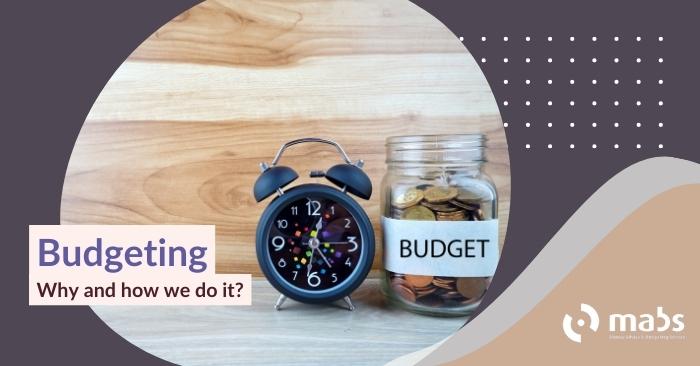Why we budget and how?

In last week’s blog, we shared our top tips for starting 2023 right when it comes to managing your money. We mentioned how to maximise income, reduce spending, increase saving and our favourite – budgeting! Many people set a New Year’s resolution of saving more or being better with our money.
Believe it or not, being better with personal finances is one of the top resolutions made by people each year. In fact, according to the Irish Independent, 20% said they would budget properly last year.
In MABS, everything we do begins with a budget (it’s in our name!) no matter how big or small your income is. In this blog, we want to focus on the process of budgeting and outline the positives of keeping track of your household and personal finances.
Let’s get started
Decide what works best for you. In our last blog, we mentioned using the ‘old-school’ approach of pen and paper. Maybe you prefer using an excel sheet or word document? Maybe an app on your phone is preferable? Whatever your preferred method of managing your budget is, go with it.
One of the tools we use to create our budget is the MABS budgeting tool. It is a good starting point as it shows how much money you have coming in and going out over a year and how much is leftover or short.
The tool will calculate your numbers and show income and expenditure in weekly, monthly, and yearly amounts. You can save it and make changes as needed too.
Try not to overthink it when you start – a budget can be as simple as you want it to be. Budgeting allows you to gain control of your spending and support you in planning for the future.
What will I need?
It’s important to be aware of and to understand your outgoings every week, month, and year.
For example, if you have 6 months of bank statements, it will give you a good idea of what goes out of your account on direct debits or standing orders (such as a mortgage, rent, utilities, and loan payments). It will also give you an idea of spending on expenses like food and transport (fuel or public transport).
Make note of any yearly costs, such as NCT, and annual insurance. Don’t leave anything out – wages, social welfare payments, maintenance, pensions and so on. If you decide to do:
- A weekly budget, you will need to divide any yearly income by 52.
- If you get paid monthly, but want to work out your weekly income, multiply by 12 and divide by 52.
For example, let’s say that your take-home pay is €1,500 a month. Multiply it by 12, which will equal €18,000. Then divide €18,000 by 52, which will equal €346.15 a week.
OK, I’m ready
When you have all your income details and a good idea of your outgoings, you are ready to start your budget. Do one final check to make sure you haven’t missed anything!
If you have not created a budget before or want to improve your budgeting skills, you can always check out our tips on mabs.ie. As well as our budgeting tool, it also has expert advice and guides, such as, ‘How to budget’, ‘Living on a low income’ and ‘Planning for the Future’.
Contact Us
If you’d like to do some additional reading or learn more about budgeting, visit our page on How to Budget.
If you would like some help, support or advice, please reach out.
Call the MABS National Helpline on 0818 07 2000 Monday to Friday, from 9am to 8pm, or request a callback if you want to talk confidentially about budgeting, problem debt or general financial matters.
Disclaimer: Every effort has been made to ensure this information is current and correct. The details of each case can be unique. As a result, the outcome can be different to what has been described in this blog.
Note: We welcome references to and use of the content in this blog. However, please reference MABS and link said content if you choose to do so.




Facebook
twitter
Instagram